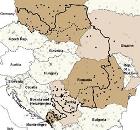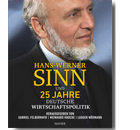
 |
| Issue 4/2016 |
Recent Research Topics |
Do ICT Skills Pay off on the Labor Market?Despite the general conviction that skills in the mastery of information and communication technologies (ICT) pay off in the workplace, there is little robust evidence to support this. In a new study, Simon Wiederhold from the Ifo Center for the Economics of Education, together with Oliver Falck and Alexandra Heimisch from the Ifo Center for Industrial Organization and New Technologies, shows that higher ICT skills as measured in the “Adult PISA” do indeed lead to higher wages in the labor market. For the analysis, they use the fact that, regardless of their other skills, people in some areas of Germany have more ICT skills due to the increased availability of broadband Internet. more... |

|
Reading Skills Important for Migrants’ Learning in other SubjectsThe better immigrant children speak the language of the target country, the better they cope in other subjects such as math. This is the finding of a new study by Marc Piopiunik from the Ifo Center for the Economics of Education, together with Ingo Isphording from IZA in Bonn and Núria Rodríguez-Planas from the City University of New York, which has been published in the journal Economics Letters. To distinguish between cause and effect, the authors use differences in the reading skills of immigrant students in the four PISA studies from 2003 to 2012 that come about because of differences in the age at immigration and the linguistic distance between the languages of the home country and the target country. The results underscore the importance of early language support for the educational careers of immigrant children. more... |

|
Expert Council Calls for Master Plan for Educational IntegrationSuccessful integration of immigrants and refugees in the education system is a major challenge for Germany. In its new report, “Integration through Education – Migrants and Refugees in Germany”, the Expert Council on Education (Aktionsrat Bildung), of which Ludger Woessmann from the Ifo Center for the Economics of Education is a member, presents data and findings about people with an immigrant background from preschool up to continuing education. The Council applies this experience to the challenge of refugee integration and calls for the development and implementation of a “Master Plan for Educational Integration”. more (in German)... |

|
Advisory Council at Economics Ministry Recommends Transparency in Education PolicyWhen it comes to a country’s economic prosperity, the education of the population cannot be ignored. Consequentially, the Academic Advisory Council at the Federal Ministry of Economics and Energy, of which Ludger Woessmann is a member, deals with education policy in its latest report and recommends more transparency in this area. With comparable results of the German federal states and better access to relevant data, a fruitful competition can emerge between the states in a federal system, so that effective education policies can be identified. Given the rather low level of information in Germany in an international comparison, the Advisory Council argues in favor of the systematic provision of information on the performance of education systems, particularly at the state level. more (in German)... |

|
State Procurement Influences Innovativeness of EconomyGovernments purchase everything from airplanes to zucchini. Does the technological content of government procurement play a role for innovation in the private sector? In a study published in the American Economic Journal: Macroeconomics, Simon Wiederhold from the Ifo Center for the Economics of Education and his coauthor Viktor Slavtchev show that government procurement that buys more high-tech products does in fact lead to higher research and development spending in the private sector. To reach this conclusion, they make use of microeconometric methods on extensive data of US states. more... |

|
The Habsburg Empire Persists in Trust in the BureaucracyEven a hundred years after its collapse, the influence of the Habsburg Empire is still alive in Eastern Europe. This is the result reached by Ludger Woessmann, together with Ifo research professor Sascha Becker from Warwick University, Katrin Boeckh and Christa Hainz, in a study published in the Economic Journal. The researchers exploit the fact that the former Habsburg border cuts straight through several contemporary Eastern European countries. By comparing people within the same country on both sides of the long-gone Habsburg border, they are able to show that the former Habsburg Empire still exerts an influence today in reduced corruption and greater trust of citizens in their local government institutions. more... |

|
Tour d’Horizon of a Quarter Century of German Economic PolicyTo mark the retirement of Hans-Werner Sinn as Ifo President, Ludger Woessmann, together with Gabriel Felbermayr and Meinhard Knoche, edited the book Hans-Werner Sinn und 25 Jahre deutsche Wirtschaftspolitik, published by Hanser Verlag. 111 personalities from science, politics, business, and the media recall the economic policy debates from German reunification to the Euro crisis and characterize Hans-Werner Sinn’s successful bridging from science to the public debate. The result is a historical tour d’horizon of the major controversial topics of a quarter century of German and European economic policy. more... |

|
| Back to top | |
A European Perspective: EENEE | |
|
Commissioned by the European Commission’s Directorate-General for Education and Culture, the Ifo Center for Economics of Education coordinate the
European Expert Network on the Economics of Education (EENEE).
On 15 March 2016, a panel discussion took place at the European Commission in Brussels with seven knowledge brokers in education on “Evidence-based Education Policy: Reality or Myth?”. Ludger Woessmann participated on behalf of EENEE. more...
|

|
|
A new EENEE Analytical Report summarizes scientific findings on a highly topical issue: education as a tool for the economic integration of migrants: Maria de Paola and Giorgio Brunello: Education as a Tool for the Economic Integration of Migrants, EENEE Analytical Report 27 There are also two recent EENEE Policy Briefs – two-page spotlights for the policy debate: 2/2016: Daniel Münich and Steven Rivkin: Can Incentives Effectively Raise the Quality of Instruction? (based on EENEE Analytical Report 26) 1/2016: Elena Del Rey and Ioana Schiopu: Student Debt in Selected Countries (based on EENEE Analytical Report 25) | |
| Back to top | |
In the English News | ||
German Flexibility in the Migration CrisisThe Economist quotes Ludger Woessmann on demographic changes in German schools. more... |
||
Researchers on the Refugee CrisisNature quotes Ludger Woessmann on the lack of data regarding the level of qualifications of refugees. more... |
||
The Long Shadow of HistoryThe British Independent and the Newsletter “Free Lunch” of the Financial Times report on the research of Ludger Woessmann and his coauthors on the long-lasting effects of the former Habsburg Empire with regard to trust in the justice systems in Eastern Europe. more... | ||
In the German News | ||
Why Integration will be DifficultLudger Woessmann in the Frankfurter Allgemeine Zeitung on the necessity of a shift in the refugee policy from accommodation to integration. more (in German)... |
||
What Chances do Refugees have on the Labor Market?A discussion on the integration of refugees into the labor market in the talk show Hart aber fair on public TV. more (in German)... |
||
Education Policies for the RefugeesLudger Woessmann on policies for the integration of refugees in the TV programs Plusminus, Berlin direkt, Frontal 21, and 3sat nano. | ||
A Major Challenge for SocietyInterview with Ludger Woessmann on labor market chances for refugees in the Frankfurter Neue Presse. more (in German)... | ||
| Back to top | ||
Selected Events | |
Harvard/Ifo Workshop on the Politics of Education PolicyThe Program on Education Policy and Governance at Harvard University and the Ifo Center for the Economics of Education jointly organized a workshop on “The Politics of Education Policy: An International Perspective” at the Kennedy School of Government at Harvard University on 5-6 May 2016. The participants presented and discussed current research on the political economy of education policy from an international perspective. more... |
 |
Committee on the Economics of Education Discusses “Education over the Life Cycle”On 17-18 March 2016, the annual meeting of the Committee on the Economics of Education of the German Economic Association (Verein für Socialpolitik) took place at the Leibniz Institute for Educational Trajectories (LIfBi) in Bamberg. As chairman of the Committee, Ludger Woessmann put together an exciting program on the topic “Education over the Life Cycle”. more (in German)... |
 |
Keynote Lectures on Education and ProsperityLudger Woessmann held the festive lecture at the annual reception of the Chamber of Industry and Commerce at Kiel on “The Knowledge Capital of Nations: Challenges for German Education Policy” , gave the keynote lecture at the Competence Day of the Vienna University of Economics and Business on “The Knowledge Capital of Nations: Education and the Economics of Growth” and presented in the ETH Global Lecture Series at ETH Zurich on the topic “Education Creates Prosperity”. |
|
First Erlangen Education Dialogue: Do Smartphones really Make you Smarter?On 20 April 2016, the first Erlangen Education Dialogue took place on digitalization in education. Simon Wiederhold used his lecture on the “Importance of Hardware and Software for Economic Development” to provide impulses for the further discussion. more (in German)... |
 |
| Back to top | |
Recent Publications | MonographsGabriel Felbermayr, Meinhard Knoche and Ludger Woessmann (eds.), Hans-Werner Sinn und 25 Jahre deutsche Wirtschaftspolitik, Hanser, Munich, 2016. |
Articles in Refereed JournalsSascha O. Becker, Katrin Boeckh, Christa Hainz and Ludger Woessmann, “The Empire Is Dead, Long Live the Empire! Long-Run Persistence of Trust and Corruption in the Bureaucracy”, Economic Journal 126 (590): 40-74, 2016.Ingo E. Isphording, Marc Piopiunik and Núria Rodríguez-Planas, “Speaking in Numbers: The Effect of Reading Performance on Math Performance among Immigrants”, Economics Letters 139: 52-56, 2016. Viktor Slavtchev and Simon Wiederhold, “Does the Technological Content of Government Demand Matter for Private R&D? Evidence from US States”, American Economic Journal: Macroeconomics 8 (2): 45-84, 2016. |
Working PapersOliver Falck, Alexandra Heimisch and Simon Wiederhold, “Returns to ICT Skills”, CESifo Working Paper 5720, January 2016. |
| Back to top |
Personnel | ||
| Recently, Sven Resnjanskij and Elisabeth Grewenig joined the Ifo Center for the Economics of Education as postdoc and PhD student, respectively. Jens Ruhose left the Center for a postdoc position at the University of Hannover; he will continue to cooperate with the Center on several projects. Simon Wiederhold holds an interim professorship at the Catholic University of Eichstätt-Ingolstadt during summer semester 2016 and winter semester 2016/17. Three researchers of the Center will be on leave for visiting positions at U.S. universities during the academic year 2016/17: Philipp Lergetporer will visit the University of Chicago and Stanford University; Lisa Simon will visit the University of California, Berkeley; and Katharina Werner will visit Harvard University. | ||
| Back to top | ||
Imprint | |
|
The Newsletter of the Ifo Center for the Economics of Education is a free e-mail service which informs about new research results, publications, events, and more from the Ifo Center for the Economics of Education. You can download previous issues of the newsletter in the archive. Subscribe | Unsubscribe | Feedback Your data will be stored internally by CESifo Group for dispatch of the Newsletter of the Ifo Center for the Economics of Education. It will be treated confidentially and will not be handed on to third parties. For more information see Privacy Policy. You can also visit the website of the Ifo Center for the Economics of Education. Or send us an e-mail at bildungsnews@ifo.de. Copyright © Ifo Institute 2016. Status: September 2016 Editor: Ifo Center for the Economics of Education, Ifo Institute – Leibniz Institute for Economic Research at the University of Munich, Poschingerstrasse 5, 81679 Munich
| |